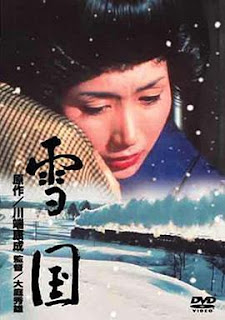91. Nî-ko͘ saⁿ-ê nn̄g-ê kiâⁿ kòe kiô
Hiah-ê sin-khó͘ ê bô-miâ lú-kang, lóng í-keng bô tī-lih ah, kan-ta chhun bí-lē ê jiâu-se. Joa̍h-thiⁿ chhēng-tio̍h chin liâng-sóng, sī Shimamura chit-chióng lâng phok-sóng ê chng-thāⁿ. Che pēng m̄-sī hi-kî ê tāi-chì, m̄-koh Shimamura hut-jiân kám-kak kî-koài. Sī-kóng, chi̍t-sim hù-chhut ài só͘ chò ê tāi-chì, chóng ū chi̍t-sî ē tī bó͘ chi̍t-ê só͘-chāi phah-chhéⁿ bó͘-lâng hioh? Shimamura ùi gān-bo̍k ē-bīn kiâⁿ chhut-lâi ke-lō͘.
Sió-tìn ê ke-lō͘ ná-chhiūⁿ kó͘-chá ia̍h-chām ê tōa-lō͘ kāng-khoán ti̍t long-long. Che tāi-khài sī ùi un-chôaⁿ chng hia liân kòe-lâi ê kū ke-lō͘. Chhù-kòa téng-bīn tèng ê chhâ-liâu-á hām teh ê chio̍h-thâu, mā hām un-chôaⁿ chng ê kāng-khoán.
Gîm-chîⁿ thiāu ê iáⁿ í-keng khah po̍h. Put-ti put-kak í-keng óa-kīn hông-hun.
In-ūi bô sáⁿ hó thang khòaⁿ, Shimamura koh chē hóe-chhia, lâi-kàu lēng-gōa chi̍t-ê sió-tìn. Chia hām tú-chiah hit-ê sió-tìn kāng-khoán. Shimamura kan-ta tī chia kiâⁿ-kiâⁿ leh, koh chia̍h chi̍t-óaⁿ ulóng-mī, hō͘ hûn-su sio-ho chi̍t-ē.
Ulóng-mī tiàm-á tī khe-hōaⁿ piⁿ, he khe tāi-khài mā sī ùi un-chôaⁿ chng lâu lo̍h-lâi ê. Ū khoaⁿ-e nî-ko͘ saⁿ-ê a̍h nn̄g-ê án-ne sio-tòe kiâⁿ kòe kiô. Ta̍k-ê lóng ta̍h chháu-ê, ū-ê kha-chiah-āu phāiⁿ le̍h-á, khòaⁿ sī tú hòa-iân tún lâi ê khoán, hō͘ lâng chi̍t-chióng chiáu-á kín boeh túiⁿ siū ê kám-kak.
"Nî-ko͘ tī chia chhut-ji̍p chin chē neh?" Shimamura mūi ulóng tiàm ê cha-bó͘-lâng.
"Sī ah. Soaⁿ lih ū chi̍t-ê nî-ko͘-am. Koh-lâi nā lo̍h tōa seh, ùi soaⁿ lih kiâⁿ chhut-lâi tō oh ah."
Kiô ê hit-pêng, tī hông-hun phú-kuiⁿ lih, í-keng sī chi̍t-phiàn pe̍h bâng-bâng.
Tī chit-ê kok-tō͘, múi kàu chhiū-hio̍h lak, léng-hong chhoe ê sî-chūn, kôaⁿ giu-giu ê o͘-im thiⁿ tō liân-sòa lâi. Tit-boeh lo̍h-seh ah. Hūiⁿ-kīn ê koân-soaⁿ lóng pe̍h bâng-bâng. He kiò chò "soaⁿ-téng tà-bū" (巡岳, sûn soaⁿ-téng). Iū-koh, óa-hái ê ūi ē thiaⁿ tio̍h hái tih háu, chhim-soaⁿ ê ūi ē thiaⁿ tio̍h soaⁿ tih tân, ká-ná hūiⁿ-hūiⁿ ê lûi-siaⁿ. Che kiò chò "hái háu soaⁿ tân" (胴鳴, hûn-su tân). Khòaⁿ tio̍h "soaⁿ-téng tà-bū", thiaⁿ tio̍h "hái háu soaⁿ tân", tō chai-iáⁿ tit-boeh lo̍h-seh ah. Shimamura siūⁿ-khí kó͘-chá chheh ū án-ne kì-chài.
--
91. 尼姑三个兩个行過橋
Hiah-ê 辛苦 ê 無名女工, 攏已經無 tī-lih ah, 干焦賰美麗 ê 皺紗. 熱天穿著真涼爽, 是 Shimamura 這種人博爽 ê 妝 thāⁿ. 這並毋是稀奇 ê 代誌, 毋過 Shimamura 忽然感覺奇怪. 是講, 一心付出愛所做 ê 代誌, 總有一時會 tī 某一个所在拍醒某人 hioh? Shimamura ùi 雁木下面行出來街路.
小鎮 ê 街路 ná 像古早驛站 ê 大路仝款直 long-long. 這大概是 ùi 溫泉庄遐連過來 ê 舊街路. 厝蓋頂面釘 ê 柴 liâu-á 和硩 ê 石頭, mā 和溫泉庄 ê 仝款.
砛簷柱 ê 影已經較薄. 不知不覺已經倚近黃昏.
因為無啥好通看, Shimamura koh 坐火車, 來到另外一个小鎮. 遮和拄才彼个小鎮仝款. Shimamura 干焦 tī 遮行行 leh, koh 食一碗 ulóng 麵, 予魂軀燒熇一下.
Ulóng 麵店仔 tī 溪岸邊, 彼溪大概 mā 是 ùi 溫泉庄流落來 ê. 有看 e 尼姑三个 a̍h 兩个 án-ne 相綴行過橋. 逐个攏踏草鞋, 有 ê 尻脊後揹笠仔, 看是拄化緣 tún 來 ê 款, 予人一種鳥仔緊欲 túiⁿ 岫 ê 感覺.
"尼姑 tī 遮出入真濟 neh?" Shimamura mūi ulóng 店 ê 查某人.
"是 ah. 山 lih 有一个尼姑庵. 閣來若落大雪, ùi 山 lih 行出來 tō 僫 ah."
橋 ê 彼爿, tī 黃昏殕 kuiⁿ lih, 已經是一遍白茫茫.
Tī 這个國度, 每到樹葉 lak, 冷風吹 ê 時陣, 寒 giu-giu ê 烏陰天 tō 連紲來. 得欲落雪 ah. Hūiⁿ 近 ê 懸山攏白茫茫. 彼叫做 "山頂罩霧" (巡岳, 巡山頂). 又閣, 倚海 ê 位會聽著海 tih 吼, 深山 ê 位會聽著山 tih 霆, ká-ná hūiⁿ-hūiⁿ ê 雷聲. 這叫做 "海吼山霆" (胴鳴, 魂軀霆). 看著 "山頂罩霧", 聽著 "海吼山霆", tō 知影得欲落雪 ah. Shimamura 想起古早冊有 án-ne 記載.
--
91.
The nameless workers, so diligent while they lived, had presently died, and only the Chijimi remained, the plaything of men like Shimamura, cool and fresh against the skin in the summer. This rather unremarkable thought struck him as most remarkable. The labor into which a heart has poured its whole love-where will it have its say, to excite and inspire, and when?
Like the old post road that was its ancestor, the main street ran without a curve through the straggling village, and no doubt on through Komako's hot spring. The roofs, with rows of stones to weigh down their shingles, were very much like the ones he already knew.
The pillars supporting the deep eaves cast dim shadows across the ground. With his hardly having noticed, afternoon had drawn on toward evenmg.
There was nothing more to see. He took a train to another village, very much like the first. Again he walked about for a time. Feeling a little chilly, he stopped for a bowl of noodles.
The noodle shop stood beside a river, probably the river that flowed past the hot spring. Shaven-headed Buddhist nuns were crossing a bridge in twos and threes to the far side. All wore rough straw sandals, and some had dome-shaped straw hats tied to their backs. Evidently on their way from a service, they looked like crows hurrying home to their nests.
"Quite a procession of them," Shimamura said to the woman who kept the shop.
"There's a nunnery up in the hills. I suppose they're getting everything done now. It will be next to impossible for them to go out once the heavy snows begin."
The mountain beyond the bridge, growing dark in the twilight, was already covered with snow.
In this snow country, cold, cloudy days succeed one another as the leaves fall and the winds grow chilly. Snow is in the air. The high mountains near and far become white in what the people of the country call "the round of the peaks." Along the coast the sea roars, and inland the mountains roar--"the roaring at the center," like a distant clap'of thunder. The round of the peaks and the roaring at the center announce that the snows are not far away. This too Shimamura had read in his old book.
--

